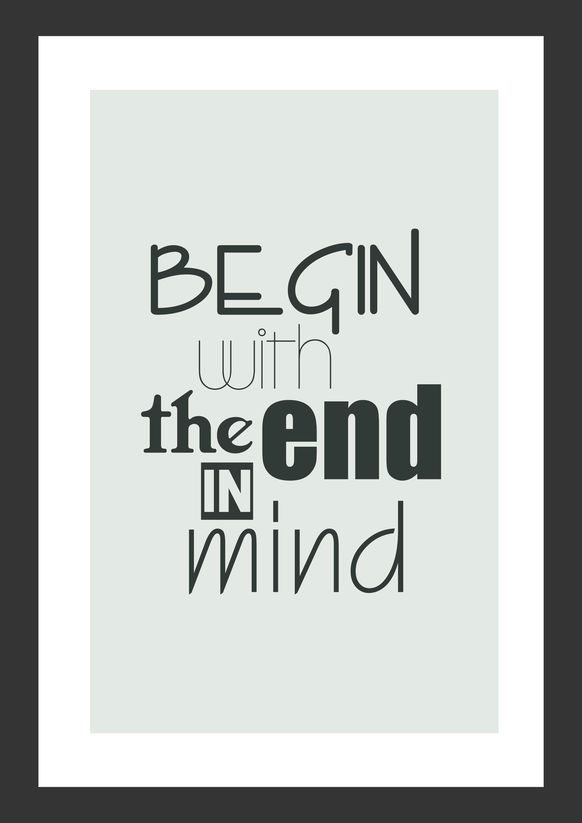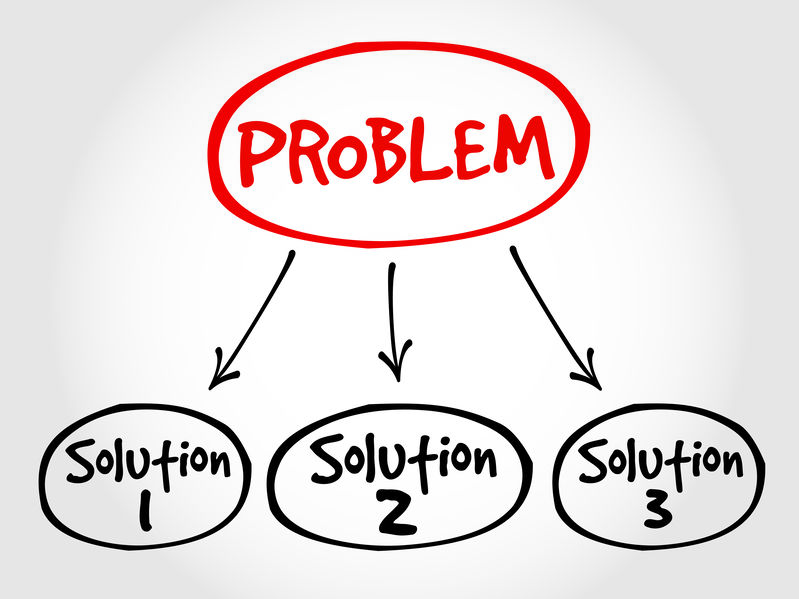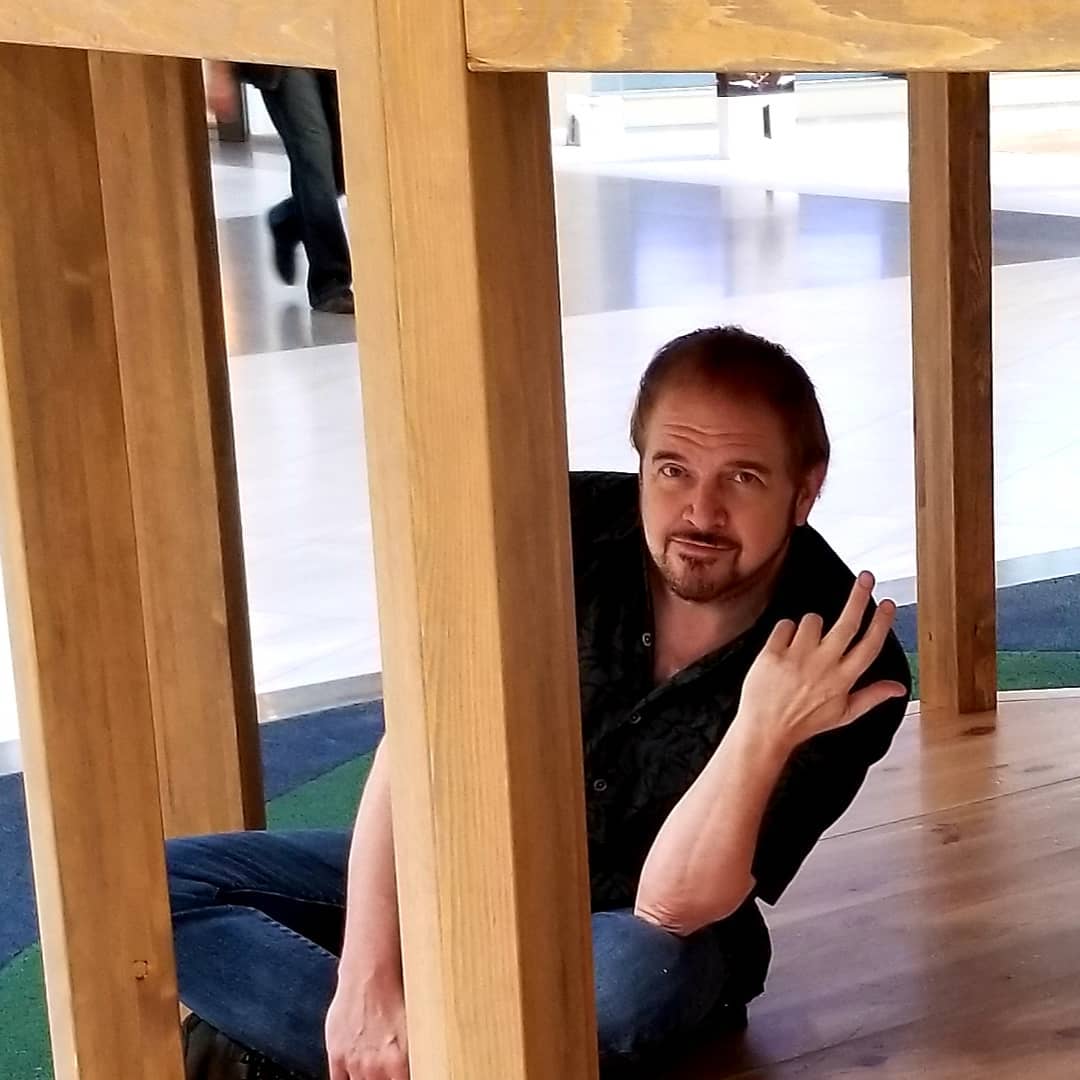 [Excerpted from The Rule of Persuasion by Kevin Hogan, February 2022]
[Excerpted from The Rule of Persuasion by Kevin Hogan, February 2022]
Well Considered Questions are Life Motivators, Persuasive and Truth Finders All growth, all technology, all meaningful and intentional personal change and the majority of influence require well considered questions. So just ask a question? Any question? Learning how to ask the right question is more challenging than you might guess. There are several good videos on questions on the YouTube Channel. youtube.com/kevinhoganchannel
There is even more advanced material ( a lot of it in the Success course we developed the last five years). But today we begin a series of articles on how questions can be utilized for persuasion.
Until you saw this, no one ever showed you a formula for asking the right question at the right time, with the intention of persuading. No one ever showed you how to create beliefs with questions and only questions.
Because there is an infinite number of questions you need to narrow that down just a bit to what matters when you ask a question.
Begin with knowing the desired outcome of the kind of question you want to ask. (What behavior do you want them to take/do?)

I’m going to hire an office manager and want the person to be able to think on their feet in a lot of different areas. This is not your typical person. Sharp, fast thinking, willing to make a mistake, willing to get it right.
“What kind of company do you want to work for?”
That’s a logical question and it’s an OK question.
Let’s say it’s a C-. They will be prepared for it. Everyone asks it. It’s fine to ask it but consider other options. If you ask that, ask what their best skills are, their strengths, their weaknesses and why they want to work for you and you have asked every question they have rehearsed all week.

But you can still ask the question. But…what might be the best question you can ask a prospective employee? Legend Point: It may be a great deal more valuable to ask, “what kind of a company don’t you want to work for?” Now you are in uncharted territory.
Everyone is prepared to answer the “why do you want to work here” question, when they walk into your office for the interview. It’s the proverbial no-brainer.
But any time communication becomes surface communication it becomes less valuable, serving only to put the candidate at ease, and that’s fine.
(How are you? I’m fine, thanks. How are you? I’m good too.)
Remember, the answer to “why do you want to work here” usually sounds like, “this company is a medium sized company that is growing and is a leader in the field. I want to be part of this long term. My skills match up well with the job you posted.” The real answers to that question are not likely to be stated.
The job seeker isn’t prepared for “What kind of a company don’t you want to work for?”
The question is a test of mental agility. Legend Point:Mental agility is what you said you wanted to hire!, the answer and speed of answer(s) to this question will show you what the person will really be able to do out of the chute. You’re asking a person to drive in reverse up the highway at 55 miles per hour. And you want to hire someone with mental agility. (For other positions, you may not. You’ll need to figure that out first. People that are highly talented, skilled and brilliant will become bored with mundane tasks quickly enough. Depending on the job, it may not be a fit at all.)
“Well, I don’t want to work for a company that doesn’t appreciate good work. I don’t want to work for a company that treats it’s employees badly.
I don’t want to work for a company that doesn’t have a good benefits package.
” Instead of a rehearsed industry standard answer, you get a list because the person has to think about the question and respond quickly then ask themselves the questions again and again internally. When you get a list of answers like this always feel free to say, “go on; continue; or what else.”
Legend Point: Let the person answer the question in detail and have multiple answers (what else) then follow up with “What kind of a job do you really not want to have?” “I don’t want a job that is boring. I don’t want a job that pays poorly. I don’t want a job that requires overtime. I don’t want a job that doesn’t have benefits.” No one asks these questions, out loud. Now you can.
Knowing what you do not want is like rocket fuel propelling someone away from something. If you find a person who knows both what they want and don’t want, you can determine the fit a lot better. People haven’t prepared stock answers for questions like this and that’s what I like about them.
They are more likely to give an honest answer vs. a prepared answer. And in this case I get to see their mental agility in action. In the case of the question that has never been heard before you have the advantage of developing a set of criteria on the other person on the spot.
That also means you are creating a belief STRUCTURE. If you’re going to hire someone you need to know if they really are going to be an asset to your company. That is more likely to happen if you know that the type of company they do not want to work for is indeed yours. Or perhaps you’ll discover they love or hate the kind of work that will be going on their desk each and every morning.
 Don’t hire someone who is going to hate you and love the company, or worse love you and hate the company. It won’t work. If you want to keep the wrong people away from you and even your company look at this: Mental Agility?
Don’t hire someone who is going to hate you and love the company, or worse love you and hate the company. It won’t work. If you want to keep the wrong people away from you and even your company look at this: Mental Agility?  …how to decide… is beauty that comes from inspired thought. “Have you considered how to decide what kind of school you want to go on to?” “Have you considered how to decide what kind of guy you want to marry? “Have you considered how to decide what kind of a person you want to date?”
…how to decide… is beauty that comes from inspired thought. “Have you considered how to decide what kind of school you want to go on to?” “Have you considered how to decide what kind of guy you want to marry? “Have you considered how to decide what kind of a person you want to date?”
Legend Point: Ask the “how to decide” question before you ask someone what they want or don’t want. This is critical. The other person needs to think about what matters in the decision making process. Notice you aren’t asking what’s important in the person you want to date, but how do you decide what kind of person you want to date. The nuance helps people fine tune their thinking process and directs them to developing a set of criteria ON THE SPOT as to precisely what that looks like. No one knows the answer to that question so ask it. You can’t prepare for it.
It’s a totally new pitch the pitcher is going to throw. It’s like a play action pass in football. Very tough to get ready for it the first 20 times you see it. Asking a person, any of those questions is pretty important to their future. “Have you considered what universities you want to consider” or “Have you considered what kind of school you do not want to go to.”
You are looking for the list of which the person typically gives you surface answers first and then later you find what matters. As you learn what’s on their list you can offer guidance to the person and help persuade them to move in the direction of the best fit.
Legend Point: The world revolves around this concept: When you tell people to do something it’s possible they will do it.
When people tell you something it approaches truth and reality and makes it likely they will do it. Why You Hesitate to Ask Questions It sounds so easy to “ask questions”, yet in reality it’s one of the most difficult things for human adults to do. Asking questions is often perceived as a behavior that will make them look foolish. Because asking questions can carry with it the implication that the person who is asking doesn’t know the answer, that might make someone shy to ask instead of tell. And the truth is that people are scared to ask questions.
 Think of the situation where a man meets a woman. They both can ask each other their name and so forth. But ask them if they would like to go to a show, dinner, or something else comes with it: REJECTION.
Think of the situation where a man meets a woman. They both can ask each other their name and so forth. But ask them if they would like to go to a show, dinner, or something else comes with it: REJECTION.
Rejection is a big emotional expense, so big that people don’t want to ask, literally fearing, “no”. And the rejection is an image in their mind. It does not become a possible fact until the other person actually answers.
People who are afraid to ask questions haven’t learned how to formulate a great question. People who are fearful to ask questions may be phobic of rejection. It’s possible and likely they have experienced so much rejection in their life that they simply don’t want to be rejected any more.
Asking questions is the easiest way to trigger rejection from another person or group. Therefore people avoid it and stick with telling people. And of course if you don’t have the authority or perceived power to tell, that is not going to end up well either. In other contexts, asking, can be seen or perceive to be seen as weakness. Many people feel their ego shrink when they ask.
Legend Point: The person who believes that asking is hazardous to their ego is more comfortable telling or talking and being disliked for “knowing everything”. If you are at the front of the room you have no choice but to talk and tell the majority of the time. Asking questions from the front of the room can often take the outcomes of the presentation and throwing them to a random wind. Asking insightful questions from the front of the room can be an excellent way to capture attention.People like to consider themselves. Asking well considered and well structured questions, one on one, can be very elegant, and with the right outcomes in mind, is absolutely brilliant in creating shifts in how people think.
Your first consideration when asking questions is to discover, seek, guide or direct the other person’s thinking process. Here’s what people hate you for if you make the mistake… Do know that because humans have differences as well as similarities? The person who asks a question could be perceived as rude or interrogated.  If you’re careful this perception will only occur with people who have been down that road before and become sensitive to questions in general or certain specific types of questions.
If you’re careful this perception will only occur with people who have been down that road before and become sensitive to questions in general or certain specific types of questions.
Legend Point: Your most common response to a question is to be fascinated. Legend Point: Fascination is an invitation for the other person to “open up.”
But not all questions that are answered come with the response of simple fascination. Sometimes YOU are going to need a little mental agility. You: “Where would you like to go to dinner?” Them: “Anywhere you want.” “Anywhere you want,” is a response that might mean they have little knowledge of a subject.
It could also mean they don’t want to look stupid for saying something that could be perceived as preparing for being judged in some negative way. And of course it COULD mean they appreciate being asked and are encouraging you to get something for asking such a nice thing that they want you to be happy as well! Fascination, “Ah…I see you are letting me be responsible for the success of the night.” Fascination, “Ah…I see you are giving me a chance to show my worth in knowing food. I could be in trouble, but I think we’ll…”
Legend Point: When you ask someone a question you want to be fascinated, intrigued, curious, have a sense of wonder, even as you ask. You want to create the ability for the other person to open the door to their mind or heart. Remember questions have caused them pain in the past and you must be different in how you ask, what you ask, how you respond and how little you react.
 Questions Can Be Framed to Prime Behavior A question can be used to prime almost any behavior you choose. Here’s how… If you completely understand how priming works in all of it’s facets, skip on down to asking question to prime. Otherwise, here are a few insights from a relatively new law of persuasion.
Questions Can Be Framed to Prime Behavior A question can be used to prime almost any behavior you choose. Here’s how… If you completely understand how priming works in all of it’s facets, skip on down to asking question to prime. Otherwise, here are a few insights from a relatively new law of persuasion.
Law of Persuasion #27 – The Law of Priming Priming occurs when something appears in one’s field of vision, their peripheral vision, or their peripheral hearing. Whatever that something is, it impacts how they will behave. Priming may easiest thought of as preparing the mind to go in the direction of the prime.
For example. We know that a man in the presence of an attractive woman (or even seeing an image of an attractive woman) causes him to almost immediately behave in a more assertive, desirable fashion. This includes being more effective, more impulsive, better behaved and more assertive. Imagine a university student sees a beautiful girl as he walks into class. Or imagine that his girlfriend has just sent him an attractive photo of herself.
Either way when he walks into his next class, his behavior improves, his assertiveness increases, his willingness to use risk, all increase. When women see an article or headline online about a stock of some company they become much more likely to buy that stock that day. What’s more fascinating is that regardless of whether the stock/company is reporting good or bad news the woman is more likely to buy the headlined stock than controls.
You simply notice a headline that Bitcoin is more than likely to double in price this year. And you then become more likely to buy Bitcoin.
 Primes prepare the mind to move in a direction of the primes or the result of the primes interaction with the individual.
Primes prepare the mind to move in a direction of the primes or the result of the primes interaction with the individual.
Incidental Exposure Incidental Exposure is part of Priming and it carries with it a powerful effect all by itself. It seems implausible to think that just because you see a widget or someone holding a widget means you’re more likely to want the same (same kind of) widget. That is the case, however. Products with visible brand names are everywhere; many times we don’t even notice them.
But how much do those unnoticed exposures affect brand choices? Quite a bit, according to a study in the Journal of Consumer Research. Authors Rosellina Ferraro (University of Maryland), James R. Bettman, and Tanya L. Chartrand (both Duke University) conducted a series of experiments using Dasani water and found that study participants who viewed pictures of ordinary people near bottles of Dasani were more likely to choose that brand over three other brands — even if they were unaware they had seen the logo.
“For example, on any given morning, one might pass several people with Starbucks coffee in hand. Will this repeated exposure affect an observer’s decision to select Starbucks coffee if given a choice among coffee brands? We show that the answer is yes, and that repeated exposure to a brand will lead to an increased likelihood of selecting that brand,” write the authors.
 In the first study, undergraduate study participants viewed photos of people engaged in everyday activities, such as waiting for a bus. Each participant was shown 20 photos. Some saw 20 with no Dasani bottles in the photos. Some saw photos with a total of 4 photos with Dasani present. Others saw 12.
In the first study, undergraduate study participants viewed photos of people engaged in everyday activities, such as waiting for a bus. Each participant was shown 20 photos. Some saw 20 with no Dasani bottles in the photos. Some saw photos with a total of 4 photos with Dasani present. Others saw 12.
Most of the participants were not aware of the presence of the brand.
The more pictures of Dasani they viewed, the more likely they were to choose it from a list of brands.
“I want the Dasani” Zero pictures
31% 4 pictures
46% 12 pictures
62% In subsequent studies, participants saw the same photos, but were also distracted by music on headphones and exposed to subliminal flashes of the Dasani logo.
The researchers discovered a significant backlash effect:People with a lot of subliminal exposures to the brand name and a lot of incidental exposures to it were not as likely to choose it. In a final study, participants were more likely to choose Dasani after seeing photos of people wearing caps with their university’s logo (with Dasani nearby) than photos of people wearing a rival team’s logo. “In essence, consumers act as their own implicit market researchers, registering information on frequency of brand exposure and its users and utilizing that information in making brand choices,” the authors conclude.
In other words, in most situations that prime behavior, something is not being said directly to them but it’s out there on the periphery or it is seemingly invisible in the current environment even though the prime, the trigger could be in plain site. It could be somewhere over here where they overheard it or saw something. A few people are in the doctors office waiting area.
If they take a seat while there is a copy of a magazine in front of them this is not going to simply prime the person to want to buy a bottle of water today. But perhaps there is an article about Aquafina or Culligan headlined on the front of the magazine. Or perhaps they saw the water cooler as they walked in the door.
It is these moments and nonconscious experiences when they’re more inclined to want to buy the water you didn’t point out. Once the person thinks about whatever you are priming, they become less likely to buy it unless they are in that specific mental buying process.
Questions shape behaviors. Behaviors shape people. With the above in mind, consider questions and priming. Ask someone if they are likely to buy a laptop computer this year and it turns out that they are more likely to buy a laptop than those who aren’t asked that question. Strangely the person’s likelihood of purchase continues on weeks and months after the simple question is asked. And here is how you frame a question to hear yes instead of no. 
Ask someone if they’d like desert, they are not likely to say yes. Ask the same person “would you like a bit of my homemade chocolate ice cream?” and the person is likely to say yes.
People are mostly taught to say no to deserts to keep weight off but homemade chocolate ice cream? Well you would want to insult the host…even if you’re sitting in Perkins. Every question can be asked poorly or with brilliance. In the case of the laptop, we know that regardless of whether they say “yes” or “no,” they are more likely to buy a laptop! The question PRIMES the future behavior even if it’s six months down the road.
Questions Drive Results Imagine you are a CEO, CFO or a similar level leader in a company. The Question Fragment, “What’s the best way to satisfy…”? has many persuasive uses. “What’s the best way to satisfy shareholders in our company?” (The answer should be to maximize quarterly profits.) Remember not only do we all get on page with the answer we teach a belief through the answer. “maximize quarterly profits.” There are of course other answers, depending on the context. If the company has just undergone a public drama, you satisfy shareholders that the drama has been abated…then you get your shareholder value maximized.
“What’s the best way to satisfy our customers?”

This is a beautiful question that will and should be answered a little differently by each major department in the company.
- Speed of service, is one excellent answer and has never been more important than it is in 2021.
- Great quality service. Not only are we fast, you are our customer and we will solve all problems that arise.
- Make it comfortable to return to our store now that covid is mostly over. People still feel unsafe, so cause them to feel safe.
“What’s the best way to satisfy our employees?” 
Lots of different answers here as well. “I’d like to be well paid.” “I’d like to be validated and recognized for my good work.” “I’m like to be appreciated.” “I’d like to be respected.” “I’d like to have a criteria, not for doing my job but doing my job at a top level so I can be worth more to the company and actually get paid for it.” Answer these questions. Work on the solutions and questions will indeed drive results.
Questions Trigger and Cement Decisions, Choices, Attitudes and Beliefs Here’s how… You are not judging them. You are not looking for truth. You are curious, interested, fascinating and wondering!  “What are some of the reasons you bought X?” “What are some of the reasons you chose Y?” “What are of the reasons you decided to Z?” What are some of the reasons you came here?” What are some of the reasons you married her?”
“What are some of the reasons you bought X?” “What are some of the reasons you chose Y?” “What are of the reasons you decided to Z?” What are some of the reasons you came here?” What are some of the reasons you married her?”
These questions all can be used to elicit information and understand another person. The much more interesting use of the questions is to ask these questions to cement the decisions and choices they have made.“I bought X because it was the smart thing to do!” That needs no further explanation or follow up. That purchase of X is now cemented in their brain.
Legend Point: As your brain looks for REASONS WHY it did something, it is seeking to prove to itself that your brain, your mind is not crazy and that YOU ARE RIGHT. That’s worth making a poster from and hanging it on the wall. It’s one of the most important discoveries we have. Here is how you do it…  There is a different set of questions for seeking out information rather than justification of a decision.
There is a different set of questions for seeking out information rather than justification of a decision.
“Why did you buy A?” (perhaps it seemed like a good idea!)
“Why did you choose B?” (perhaps they don’t know)
“Why did you decide to C?”(perhaps they got talked into it)
“Why did you come here to D?”(perhaps they don’t know, it’s just nice here)
“Why did you marry her” (perhaps he has no idea)
It is the why questions where you often can most easily transform a useless rock solid certainty to ambiguity and then from ambiguity to an emerging new belief Why, more than what, tends to find more answers as what creates justifications.
Why has a danger.
Why can trigger ambiguity about earlier decisions priming the person to make fewer decisions today. It’s very important that you don’t move the person from certainty to maybe, unless of course this is your intention!
There is a key variable in the success of what and why.
This is your tone, rising and falling, pitch and intonation of your voice. 
Words alone do influence, but words plus vocal intonation persuade.
Questions can Reinforce Further Yet
“What are some other reasons you bought the car?”, “What are some other reasons you chose the University?”, ‘What are some other reasons you asked her out?”.
If you are looking for the most real, most true to life answers, they are rarely the first thing you are told. Far more commonly the answers come 3,4,5,6,7 responses down the list. If getting closer to reality is your outcome, this is your best strategy to do so. The key phrase here is “other reasons you decided to…”
An excellent way to identify a failure in a gentle way with a bold lesson attached to it is to suggest, “The last time you took a huge leap of faith.” (It failed.) Sometimes questions and answers are similar to something they’ve done before. Utilize this as follows… Questions can Help You Find the Best Answer Asking people to make a decision or choice today is often hinged to their previous similar decision.
Perhaps the most useful way to find out the REAL WHY is to ask, “Of all the reasons (itemize the previous 2 pages one by one) a,b,c,d,e,f,; you discussed, which one is 80% of the reason you did X?” And again, if for some reason they have identified a reason and it makes little sense, you can follow up with “…what else”
Framing Questions 
Every aspect of life and the success or failures that happen from those frame making moments to completion rely on questions. You have questions to ask your spouse, your kids, your friends, your colleagues, the press, your boss, even shareholders.
The frame is literally the direction of a picture. If my wife says “Honey, I’m going outside,” I really have no idea, at all what that might mean. She could be going toward the lake, the pond, the neighbor or to the garage and the 200 foot driveway that leads out to the city’s road we are on.”
I simply say “OK” but truly, I’m clueless. I have at least four frames and I don’t know where she and my stepson will end up. When someone is accepted into our Inner Circle, they have a very detailed application process that has to be accomplished first. Then come the questions that most concern me.
What is going really well in life right now?

Remember I’m no optimist or pessimist. Once I know what is going “really well” I can learn some general strategies that person has introduced into their life. Or, perhaps we find out how they got lucky. This is the anti-magic of one question. You really don’t get an answer when you …get an answer. Instead you get what the other person thinks is in answer. They write down, “Wife, kids, all healthy, optimistic about the future.” Good enough. Means almost nothing to me as a consultant to their life. It doesn’t mean I don’t “believe them.” I tend to believe people in the most ridiculous of circumstances.
But one question? The next question is far more important to me. You see, there are really very few white swans out there in the world. It’s rare that random, unearned, goodness comes to you and your family. It happens. I have a few stories. So do you. But truly there are far more black swan stories that strike us all down at one time or another…or often in life.
That means you have to be able to get to the heart of problems, troubles and difficulties in a way that is something you can talk about. do these things… What are you struggling with most in life right now? 
Now that is a valuable question. Misfortune brings on struggles. The hot water heater can go on the fritz. The air conditioner is bound to go out and then furnace simply wont work on holidays or the coldest days of the years in one year or another. And that’s just the beginning.
The IRS audits the woefully innocent, underpaid, person who doesn’t report the lack of a covid payment even though the individual expected the covid payment. Black swans, large and small are much more regular and likely than white swans. 4:1? No. 10: 1? Closer. 20:1? That I believe would be about right.
To be clear, I think it is far more likely that the next 20 people who knock on your front door are far more likely to bring you expensive and inconvenient news. Meanwhile, I’m quite certain those days where someone brings you a lottery victory notification, a free pizza or even a reminder to pick up the four quarters in the driveway, well, you know… does that happen a lot to you? No.
Framing matters. What are you struggling with most in life right now? A good consultant asks and wants not just an answer but details and more details and more details. Bad experiences, negative experiences, pain, etc. is not a comment on the individual beyond the fact that the more people you ask to buy your product, the more you will hear “no thank you.” If no one has life happening to them that is making living a challenge on certain days in the week, I often wonder how that is possible and dig for the truth.
Whatever is going wonderful right now in life will brush up against reality at some point. From the point of influence, I need to know what those good moments are because we’re going to need to find more like that again.
The fact is that it’s much more likely I will get a long list of what’s causing struggles nowadays? And thus we ask because at least we know where someone is TRYING to succeed or they are experiencing difficulties for other reasons. Either way we have seen two extraordinary framing questions.
Allow people to give you detailed answers to your questions. Keep digging. Find all the good, all the struggles and then discover the stories behind them.
Both questions are important and allow you to accomplish different goals with your wife, child, client or boss. Frame questions to get the information you and the other person need to solve real life problems. Poorly framed questions allow you no insights.
The Question of Their Real Problem 
If you could change 3 – 5 things in life, right now, what would they be?…knowing now, everything would be OK? (What else) (What else) (What else) As has become obvious in this book your first attempt at getting a meaningful question by asking it once is unlikely to be helpful to anyone.
The magic number 7 seems to accomplish getting enough information to help direct you to answers you need to know to help people. One of the most persuasive actions you can take is to physically write down what people are saying is a concern.
Then each onion layer you peel off, the better. At some point around number five or six you will get to the key challenges a person has with you, the kids, the office, the product, the service, the presentation, the globe.






















